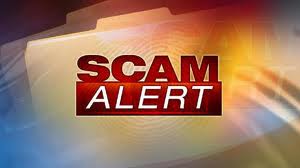 Email offers computer users a powerful and convenient communications tool.
Email offers computer users a powerful and convenient communications tool.
Regrettably, malicious individuals and scammers use emails as an easy way to lure potential victims.
They use scams to persuade people to go to sham web sites and disclose sensitive information.
They also use old-fashioned bait-and-switch operations to phishing schemes using a combination of emails.
Avoid Email Scams
You can protect yourself from these scams by using healthy habits in knowing what they look like, what they are, how they work and what steps you need to take to avoid them.
Here are some recommendations to help to avoid becoming a victim to email scams:
- Do not trust unsolicited emails
- Install antivirus software and keep it up to date
- Install a personal firewall and keep it up to date, as well
- Treat email attachments with caution
- Filter spam
- Don’t click links in email messages
It is very important to follow these recommendations to avoid becoming victim of identity or information theft, receiving illegal or counterfeit merchandise, and/or financial loss.
 Reducing Spam
Reducing Spam
Spam is unsolicited commercial email that spammers anonymously and conveniently use to reach thousands of people at once.
Many scams make promises of opportunities to make a large quantity of money without much effort on your part.
They offer enticements like “Work only hours a week,” “Be your own boss,” “Set your own hours,” and “Work from home.”
The messages offering “opportunities” may have subject lines that look like the following:
- Make a Regular Income with Online Auctions
- Get Rich Click
- eBay Insider Secrets Revealed 6228
- Use the Internet to make money
- Put your computer to work for you!
 In many of these cases, emails do not divulge much detail about the nature of the business opportunity.
In many of these cases, emails do not divulge much detail about the nature of the business opportunity.
They provide a web site or address where you can obtain an “information kit” and require you pay an additional fee.
However, the “opportunity” involves you recruiting more unsuspecting people to buy into the scam.
Healthy Habits with Email
It is very important that you use healthy habits with your email account.
The Federal Trade Commission provides a list of 12 most common email scams:
- Chain letters
- Work-at-home schemes
- Health and diet scams
- Easy money
- “Free” goods
- Cable descramble kits
- “Guaranteed” loans or credit
- Bogus business opportunities
- Investment opportunities
- Bulk email schemes
- Credit repair scams
- Vacation prize promotions
Do you think you’re a victim? Immediately change your passwords and use different passwords for each account.
Report any attacks to your financial accounts to your financial institution immediately and close any accounts that may have been compromised.
Also, if you experience any attacks to your computer consider reporting it to the police and file a report with the Federal Trade Commission (http://www.ftc.gov/).
Once more George you wrote a quite informative article. What I do when I see a “biz op” or similar site is to Google .(name of program.scam. For example getrichdoingnothing.com scam. The name I used as far as I know isn’t real. Good reading your writing. Looking forward to seeing more soon.
Thank you, Lynda.
I appreciate that you shared your technique in avoiding email scams.
It’s always great to hear from you!
George,
This article is great!
I’d like to add that I’ve received emails from PayPal requesting I update my account information. However, after contacting PayPal they advised me that PayPal addresses “your name” to all emails, not “Dear Customer.”
If you get an email from PayPal that starts with “Dear Customer” do not respond to it! Scammers are trying to get your personal information–report it to PayPal, immediately.
Thanks again,
Tina
Thank you for sharing your experience with us, Tina!
You’re absolutely correct in being especially cautious in providing your personal information to anyone via email.
I share in your concern and will keep my eyes open…
As always great direction George.
Another reason for those of involved in “marketing” and “sales” to master the skill of creating campaigns focused on personal connection and engagement.
As we develop the privilege of TRUST our e-mail gets opened and the calls to action are acted upon
You’re right, Chuck! Not all email is spam or a hoax. However, there are tell-tale signs people should be aware of and look out for. Thank you for reading and providing your perspective and insight!
George this was a good one to write and you did it justice my friend. There’s a great deal of people that don’t realize the dangers of email scams.
You see scams being perpetrated on the internet everyday, and we can do our best to try to stop it when we see it is happening to someone.
Thanks for putting this out. Now I will spread the word to all my friends.
Thank you, Terri! I appreciate you sharing your thoughts and concerns pertaining to this issue!